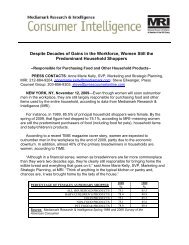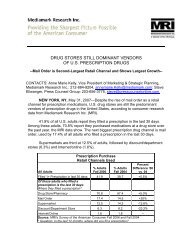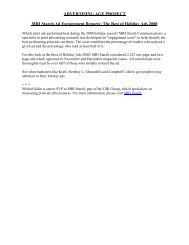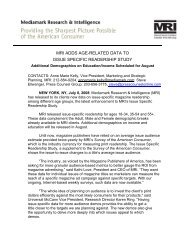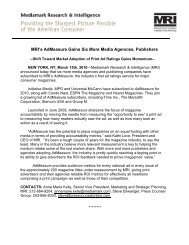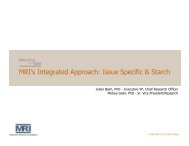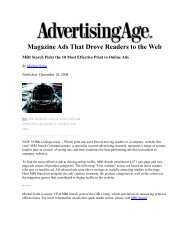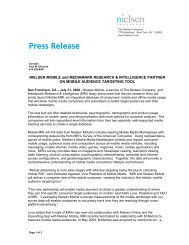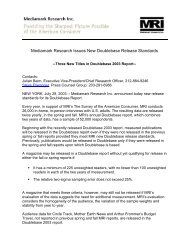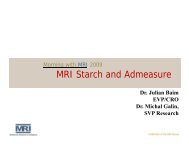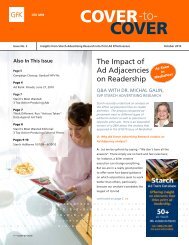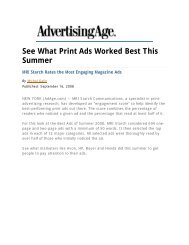Psychographic Sourcebook - GfK MRI
Psychographic Sourcebook - GfK MRI
Psychographic Sourcebook - GfK MRI
Create successful ePaper yourself
Turn your PDF publications into a flip-book with our unique Google optimized e-Paper software.
PART 1: Survey of the American Consumer<br />
VI. <strong>Psychographic</strong> Segmentation Analyses<br />
V. Civic & Political Engagement Segmentation<br />
Labels such as Republican, Democratic, Independent, Liberal and Conservative may be useful to journalists and pundits, but they fall short in<br />
helping to draw an accurate, in-depth picture of the American political landscape. This segmentation helps marketers better understand the<br />
dynamics and motivations of American adults not just as consumers, but also as citizens.<br />
• Political Activists<br />
Deeply committed to and involved in the political process, these consumers index exceptionally high across a full range of political<br />
activities: voting, organizing, communicating, active involvement in local and national politics. They tend to be highly educated and<br />
affluent, with a median age of 51.5, and, in political outlook, shun the middle of the road. Newspapers and radio are their most<br />
trusted media.<br />
• Local Participants<br />
These citizens show a high level of interaction with other people in their communities. They serve on local committees, as officers of<br />
local clubs and organizations, and engage in public fundraising at three times the national rate. They are affluent and highly educated,<br />
somewhat more likely to be women, and just as likely to contribute to PBS or NPR as they are to contribute to religious organizations.<br />
Television has a relatively low ranking in their roster of trusted media.<br />
• Civic Advocates<br />
Members of this segment want their voices heard. They publish books, write articles for magazines and newspapers, deliver speeches<br />
and use all forms of media, including live radio and TV programs, to promote their views and opinions. Civic Advocates are likely to be<br />
Late Boomers, highly educated, affluent and liberal. They trust the Internet more than any other medium, and are the least likely of the<br />
political segments to watch TV (including primetime).<br />
continued on next page>><br />
Source: Mediamark Research & Intelligence, Fall 2007<br />
50



